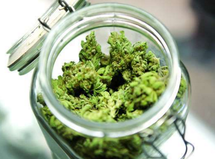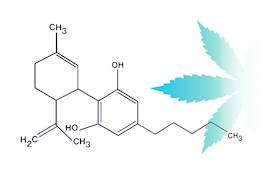|
A syndrome is a collection of symptoms that frequently occur together. Tourette’s Syndrome is characterized by sudden, repetitive, rapid, unwanted movements or vocal sounds called tics. Many people associate Tourette’s with outbursts of obscene or socially inappropriate words. Although only one third of people with Tourette’s make obscene remarks. Those who have outbursts find it difficult to deal with public places, school, work, or even home. Just getting through the day can be excruciatingly difficult. Doctors previously thought that Tourette’s was a psychological disorder. Today, most scientists agree that Tourette’s is a neurological disorder with unknown causes.
Tics come and go over time. They first appear between the ages of 5 and 10, usually in the head and neck area. Motor tics typically appear before vocal tics or outbursts. The tics usually get worse in the early teen years and become more controlled by the late teens or early 20s. Tics worsen with excitement or anxiety and improve during calm or focused activities. Imagine trying to calm your excitement or anxiety as a teenager. Canadian researchers performed a double-blind, randomized, placebo controlled, cross-over study of nine people with Tourette’s. In prior studies, patients had reported a reduction in tic severity, improved sleep, and improved mood after using Cannabis. This study controlled the type of Cannabis and dosage used. Each participant vaporized ¼ gram of either Type I, II, III, or placebo Cannabis flowers once every two weeks. The Type I Cannabis had only 10% THC, Type II had 9% each of THC and CBD, and Type III had 13% CBD with very little THC. Four different survey scales were used to assess the frequency and severity of the tics after Cannabis use. The Type I (or 10% THC) flowers worked best. Type II (or 1:1 ratio THC and CBD) were a little less effective than Type I. Type III CBD flowers did not have any significant effects. Type I and II Cannabis improved urge for tics, symptoms of distress, and overall well-being. Type I flowers also had more cognitive and psychological adverse events. The researchers admitted that it was difficult to draw conclusions from a small sample of participants. MediCann has evaluated a handful of patients with Tourette’s. Their ages range from 18 to 46. On average, they smoke ½ gram of Tyle I Cannabis (closer to 20% THC) 3-4 times per day. Some just smoke 1 time per day and others may smoke up to 8-10 times per day. One patient, the 18-year-old, tried a CBD tincture without success and is next planning to try a 1:1 THC-CBD tincture. Outside of the 18-year-old, they all report improved symptoms with Cannabis use. When it comes to Cannabis, collecting real-world data complements traditional study design. Non-interventional studies of Tourette’s demonstrate significant improvement with Medical Cannabis. The studies illustrate a wide range of dosage and variable experiences with Cannabis. They highlight that Cannabis is not a one-size fits all medicine. |
AuthorJean Talleyrand, M.D., Archives
September 2023
Categories |
Mailing Address: MediCann 1336 Willard Street, C • San Francisco, CA 94117
Important Disclaimer!
The information contained in this site does not intend to replace any medical advice or care by a trained physician.
Any use of this information is solely the the responsibility of the user.
Important Disclaimer!
The information contained in this site does not intend to replace any medical advice or care by a trained physician.
Any use of this information is solely the the responsibility of the user.
© COPYRIGHT 2015. ALL RIGHTS RESERVED.


 RSS Feed
RSS Feed


